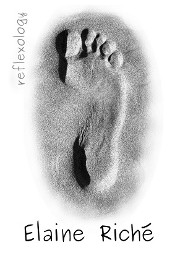 Book online
Gift Vouchers
Biography
About Reflexology
About Compassionate Inquiry
About Somatic Experiencing
Book online
Gift Vouchers
Biography
About Reflexology
About Compassionate Inquiry
About Somatic Experiencing
Developed by Dr. Gabor Maté, Compassionate Inquiry is a largely cognitive therapy where the practitioner engages the client in a process of discussion, one that helps them toward a greater self-awareness. Trauma sufferers often feel trapped by their own experiences and circumstances, but Maté found that as individuals, we may also carry beliefs and behaviours that impact and limit our mental and physical well-being in a negative way. These may be intrinsic to us, they may be collectively held as part of our wider community, as many of us who experienced “The Troubles” can attest.
Compassionate Inquiry enables us to reframe those beliefs and behaviours, to modify our approach to life, and to attain a greater sense of wellness.
The therapy takes a non-invasive approach. It is not confrontational, asking you to relive your experiences and “overcome” your trauma, nor it is it analytical, helping you understand how and why it happened. It is about how you live your life now, how you heal, how you engage with the world. As such my approach is gentle, never rigid, never intrusive, and always client lead – as one of my teachers said, “it is a conversation about a conversation,” an easing of you to a place where you feel able to express yourself.
We are dealing with developmental trauma, past experiences and attitudes that have bound us, and to do that we have to learn to see them through a “compassionate lens”, not merely a compassionate, balanced view of events but a compassionate, more understanding view of ourselves. We each have our own path, but we all share an innate capacity to process and adapt. My role is to help you on this journey to awareness, acceptance, freedom and empowerment.
I was drawn to Compassionate Inquiry by my experiences with “The Troubles” and my realization that we experience trauma not merely as an individual but as a community, and to a degree we normalize it. I believe that the central tenet of Compassionate Inquiry – that we hold beliefs and behaviours that may be damaging to ourselves – is something we need to address not merely as individuals but as a community, as a nation, as a world.